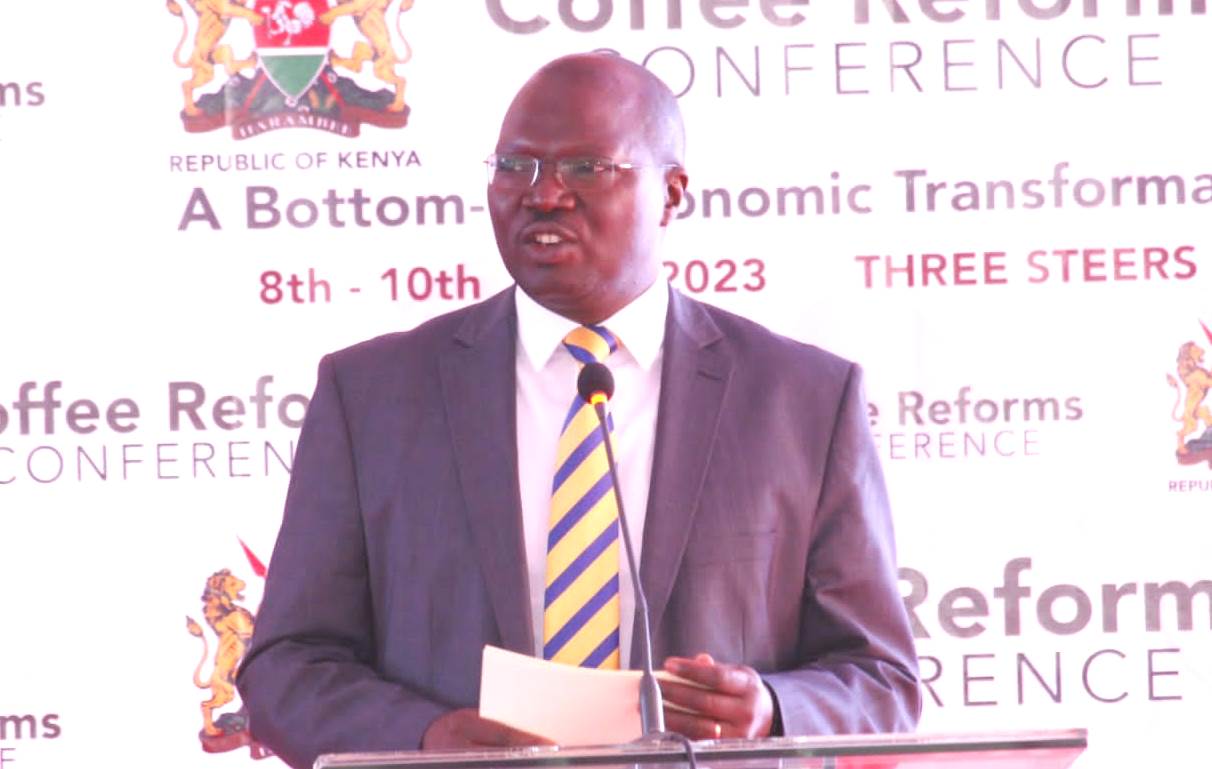The Co-operative Bill 2023 is a game-changer as it will allow the government a level of control over activities of the cooperative movement and intervene in case of any risk that may threaten the movement with the aim of making the multi-billion sector flourish again.
A look into the bill shows that unlike before when the government had no direct role in monitoring the affairs and conduct of cooperatives, when the bill is passed into law, the government will play its rightful role without necessarily being seen to interfere with the day to day running of the sector.
The current state of affairs was brought about by Structural Adjustment Programmes (SAPs) and liberalization of the 1990s, which were to make cooperatives member-owned.
Though well-meaning, the SAPs were rushed and resulted in the government being pushed out of the picture to completely change the landscape from what the sector looked like in the 1970s and 1980s.
Before independence in 1963, the Commissioner for Cooperatives was a powerful figure and the State wanted to use cooperatives as vehicles for development.
In this regard, there was an Act of Parliament that was enacted in 1966 which made the commissioner even more powerful. The cooperatives used to operate under the discretion of the commissioner, a situation that blinded them to the fact that they are private entities owned by members.
The sector then flourished, more particularly in the 70s and 80s. But when the donor community pressed with SAPs, the government was forced to pull out of the affairs of cooperatives. What followed was a massive breakdown due to poor governance.
The Cooperative Societies Act Cap. 490 enacted in 1997 and later amended several times was to operationalize the liberalization policy since the government believed that the cooperatives were ‘mature’ enough to manage their own internal affairs.
Unfortunately, that was the beginning of the collapse of a good number of them. An example is the then apex body of cooperatives – the Kenya National Federation of Co-operatives (KNFC) which was formed in 1964.
Coffee cooperatives started splitting into smaller entities as the bigger ones like the defunct Kenya Planters Co-operative Union (KPCU) died.
Co-operative Alliance of Kenya (CAK) was later registered on December 22, 2009 under the Co-operative Societies Act CAP 490 of 2004 to replace the hitherto national apex body, the KNFC.
By this time, it was a chaotic movement. Pyramid schemes proliferated in the name of Saccos, invaded the sector and swindled Kenyans of millions.
Former Cooperatives Development and Marketing minister the late Joseph Nyagah at one point in 2009 appointed a taskforce that published a report identifying 270 pyramid schemes that stole Ksh8.1 billion from 121,205 Kenyans.
The unearthing of the massive scam, which took place between 2005 and 2007, had adverse effects on investors, including family break-ups, suicides and deaths from stress-related illnesses.
The new dawn
The increasing collapse of cooperatives and poor governance led to the amendment of the 1997 Act when the late President Mwai Kibaki came into power in 2002. Through it, the Commissioner was given some powers that could remedy the situation. The Act was further amended in 2004.
And now in the new Co-operative Bill 2023 which will repeal the Co-operative Societies Act Cap. 490, the cooperative movement will be fully monitored by the government in that despite them being private entities and member-owned, it is allowed to institute interventions in case something goes wrong.
The new bill sponsored by Cabinet Secretary (CS) for Cooperatives and Micro, Small and Medium Enterprises (MSME) Development Simon Chelugui proposes the establishment of three levels of offices for administration of the Act.
The first office, run by the national government, is the Office of the Commissioner for Cooperative Development to supervise the functions of the County Director of Cooperatives, which is the second level.
This second level will promote, register and regulate cooperatives, and further provide for inter-governmental cooperative relations which will be carried out under the third level office; that of the Inter-Governmental Cooperatives Relations Technical Forum.
In this bill, the Commissioner has been given more powers as compared to the current Act. The Commissioner, besides being responsible for the growth, development and regulation of cooperatives, will also recommend to the CS the formulation of a national policy framework and standards for the development and growth of cooperatives.
The office will also coordinate the implementation of an inter-governmental relations mechanism, register all cooperatives in Kenya and maintain a national register of all cooperatives, as well as promote and facilitate the registration of cooperative federations and the apex cooperative.
In addition, the Commissioner will conduct inquiries into the affairs of cooperatives, carry out supervision and inspections into the affairs of federations and the apex cooperative, carry out capacity building for county governments in matters relating to cooperatives, and develop and enforce good governance, ethics and integrity guidelines in the sector.
Other roles will include maintaining a list of auditing firms authorized to audit cooperatives, register audited financial statements of cooperatives, develop and promote adoption of uniform norms and standards for cooperatives, and promote and develop frameworks for public/private partnerships in Cooperatives, among others.
The Commissioner will be required to prepare and submit financial and non-financial annual reports on the performance and activities of the cooperatives to the CS within six months after the end of each financial year.
County director
The County Director for Cooperatives on the other hand will be responsible for promoting the formation and day-to-day supervision of cooperatives in the county.
They will further formulate and implement strategies, guidelines, and measures in cooperative matters in accordance with the national policy framework, and carry out inspections into the affairs of cooperatives in the county.
This office will supervise elections in cooperatives within the county, enforce good governance in the management of cooperatives and provide external auditing services to them.
They will also carry out capacity building of cooperatives in the counties, promote value addition, joint ventures and adoption of appropriate technology.
The director will further establish and maintain a county cooperative research and information centre, facilitate collaboration and linkages between primary and secondary cooperatives, collect, collate, analyze and disseminate data on the activities of cooperatives in the county, and develop strategies on the improvement of governance and growth of those cooperatives.
The County Director for Cooperatives will also be required to prepare and submit to the county executive committee member (CECM) in charge of cooperatives an annual report on the performance, activities and operations of the office and of the cooperatives within the county. This will be done within three months after the end of each financial year.
Inter-governmental forum
The Inter-Governmental Cooperatives Relations Technical Forum is an unincorporated body consisting of the Commissioner, who will be the chairperson, the forty-seven county directors for cooperatives, the chief executive officer (CEO) of the Authority, an officer appointed by the Council of Governors (CoG), and a representative of the apex cooperative who will be an ex-officio member.
The Commissioner will be required to provide secretariat services to the Inter-governmental Co-operatives Relations Technical Forum, including designating an officer to serve as secretary, and will provide adequate annual budgetary allocations for the funding of operations.
The forum will be the platform for consultation amongst county governments and between the national and county governments on cooperative matters.
It will also be a consideration point for technical and policy proposals in the cooperative sector, who will be formulating guidelines on the promotion and supervision of cooperatives.
It will meet at least twice a year.
By Roy Hezron
Get more stories from our website: Sacco Review.
For comments and clarifications, write to: Saccoreview@shrendpublishers.co.ke
Kindly follow us via our social media pages on Facebook: Sacco Review Newspaper for timely updates
Stay ahead of the pack! Grab the latest Sacco Review newspaper!



